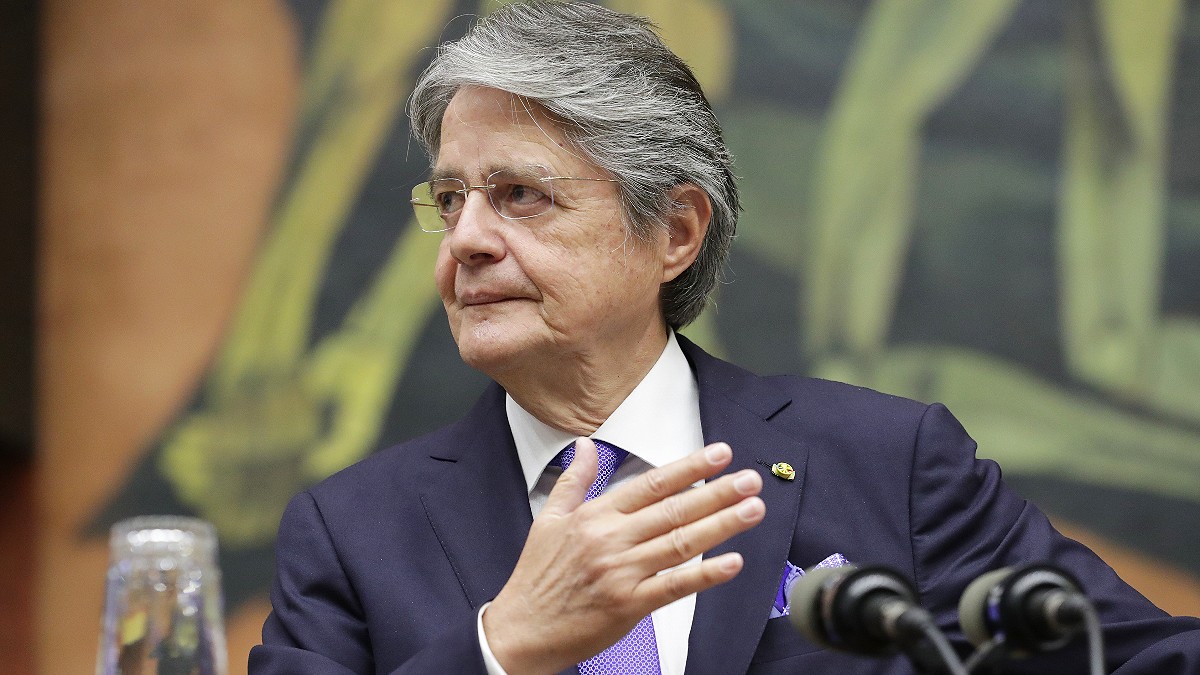By Fábio Galão
One of the few governments in South America that are not in the hands of the left, the management of Guillermo Lasso in Ecuador is suffering perhaps its moment of greatest pressure since the conservative politician came to the presidency (he has been in power since May 2021), with defeats in the polls, the departure of key allies and an investigation in the Legislative controlled by the opposition, which last year almost achieved his impeachment.
On May 5, the Ecuadorian population rejected in a referendum a series of proposals made by the government, such as allowing the extradition of Ecuadorians wanted for organized crime, reducing the number of members of the National Assembly, and removing the power of the Council of Citizen Participation and Social Control (CPCCS) to appoint authorities such as the attorney general and the controller.

A few days later, then-government minister Francisco Jimenez (who had been one of the advocates of the referendum) and councilor Aparicio Caicedo resigned as a consequence of the defeat.
Jimenez stated, “it’s not easy to lead a country where political opponents are always on the lookout for a coup d’état.”
In an interview with the Infobae website, former Secretary of Communication for the Presidency Leonardo Laso blamed Caicedo for the setback in the referendum.
He claimed he had warned the councilor about the “high risk” of holding the consultation on the same day as the local elections.
“A consultation is always a plebiscite on the current management, and with such low approval, there was a high risk of the ‘no’ vote winning,” he stressed.
The local elections mentioned by Laso represented another victory for opponents of the current Ecuadorian president.
The Citizen Revolution party of leftist former president Rafael Correa (2007-2017) won the disputes for the mayorships of Quito and Guayaquil, the country’s two largest cities.
Correa, who has an eight-year prison sentence issued by Ecuadorian courts for the crime of bribery, was granted asylum in Belgium last year.
Speaking to El País, political consultant Wendy Reyes said that Lasso’s popularity is declining due to problems in security, economy, and health.
Ecuador is experiencing a dispute between criminal groups that have generated major massacres in prisons – analysts point to the actions of Venezuelan and Colombian groups in destabilizing the country.
“What has been discussed in these elections is how to rescue local leadership in the absence of national leadership,” said Reyes.
In a recent Foundation for Citizenship and Development survey, nine out of ten Ecuadorians said they had no confidence in the national government.
Adding to the wear and tear, a National Assembly commission investigating alleged corruption cases in public companies is expected to present its report by the end of next week.
One of those investigated is Danilo Carrera, Guillermo Lasso’s brother-in-law.
Gruber Zambrano, government leader in the house, said that the investigation has only political purposes.
“[The final report] has already been written; it has already been said that this commission will present a negative report for the president. They [the opposition] want his impeachment and to destabilize democracy in the country,” he charged.
In June 2022, Lasso was the target of large protests, and an impeachment process called by lawmakers allied with Correa and linked to indigenous movements did not go forward because only 12 votes were missing.
With information from EFE/Gazeta do Povo

